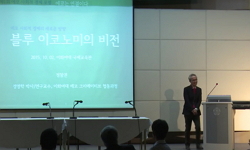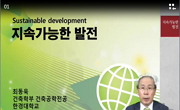최근 국제사회에서는 기업의 사회적 책임(Corporate Social Responsibility: CSR)에 대한 인식이 급속하게 확산되고 있다. 기업의 사회적 책임에 대해서 유럽연합 집행위원회(European Commission)는 “사회...
http://chineseinput.net/에서 pinyin(병음)방식으로 중국어를 변환할 수 있습니다.
변환된 중국어를 복사하여 사용하시면 됩니다.
- 中文 을 입력하시려면 zhongwen을 입력하시고 space를누르시면됩니다.
- 北京 을 입력하시려면 beijing을 입력하시고 space를 누르시면 됩니다.

중국의 조화로운 사회(和諧社會) 건설과 기업의 사회적 책임(CSR)에 관한 일고(一考) = A Study on "the Construction of a Harmonious Society" and the Corporate Social Responsibility(CSR) in China
한글로보기https://www.riss.kr/link?id=A100665775
- 저자
- 발행기관
- 학술지명
- 권호사항
-
발행연도
2013
-
작성언어
Korean
- 주제어
-
등재정보
KCI등재
-
자료형태
학술저널
-
수록면
115-134(20쪽)
- DOI식별코드
- 제공처
-
0
상세조회 -
0
다운로드
부가정보
국문 초록 (Abstract)
최근 국제사회에서는 기업의 사회적 책임(Corporate Social Responsibility: CSR)에 대한 인식이 급속하게 확산되고 있다. 기업의 사회적 책임에 대해서 유럽연합 집행위원회(European Commission)는 “사회에 미치는 영향에 대한 기업의 책임”이라고 정의하고 있다. 즉 기업의 사회적 책임은 더 응집력 있는 사회를 건설하고 지속 가능한 경제체제로의 발전을 위한 가치를 제공하며, 사회적 책임을 다하기 위해 기업은 이해관계자들과의 긴밀한 협력으로 기업경영과 핵심전략에 사회적, 환경적, 도덕적, 인권 그리고 소비자 등의 요소를 반영해야 한다는 것이다. 기업의 사회적 책임 개념은 지속가능한 발전(Sustainable Development)의 개념이 지구적으로 확산되는 가운데 강조되고 있다. UN은 지속가능한 발전의 개념을 환경과 경제로부터 사회적인 균형발전까지 포함하는 차원으로 확장시켜 왔다. 특히 2002년 요하네스버그에서 개최된 지속가능한 발전을 위한 세계정상회의(World Summit on Sustainable Development: WSSD)에서 UN은 “우리는 지속가능한 발전을 위한 핵심 요소들, 즉 경제적 발전, 사회적 발전과 환경보호 간의 상호의존과 상호보완 증진과 강화를 위해 전방위적 차원에서 공동의 책임을 가진다”고 선언함으로써 경제적 발전, 사회적 발전, 환경보호의세 요소가 조화된 지속가능한 발전의 개념을 확립한 바 있다. 최근 들어 중국에서도 기업의 사회적 책임에 대한 인식이 확산되고 있으며, 이는 중국정부 차원에서보다 주도적으로 강조하고 있는 것으로 보인다. 중국정부는 2009년부터 국유기업, 민영기업, 외자기업을 대상으로 기업의 사회적 책임지수를 조사해 발표하고 있다. 중국정부가 기업의 사회적 책임을 강조하는 것은 개혁개방시기 급속한 경제발전의 부정적 영향으로 인한 사회적 갈등의 확산을 그 배경으로 하고 있다. 즉 과거에 비해 경제적으로 부유해진 지금 많은 이들이 미처 관심을 가지지 못하고 있는 공익 측면에서의 도덕적, 정신적 가치를 어떻게 수호해야 하는가의 문제가 대두되고 있는 가운데 기업의 사회적책임에 많은 관심이 모아지고 있는 것이다. 사회적, 경제적 발전의 부조화로 인한 갈등을 해결하기 위해 후진타오 정부 시기 중국은 “조화로운 사회(和諧社會)의 건설” 개념을 제시하였고, 이는 2006년 10월 11일 중공 16기 6중전회에서 공식적 통치이념으로 받아들여졌다. “조화로운 사회의 건설”의 핵심 이념은 사회적, 경제적 평등과 정의의 실현이며, 이는 곧 성장우선주의로부터 균형적 분배의 강조라는 중국의 발전 패러다임의 전환을 의미한다. 그리고 그러한 변화의 과정에서 중국 정부는 사회적 책임 이행을 위한 민간의 역할, 특히 기업의 역할을 강조하고 있는 것이다. 이 같은 배경에서 이 글은 기업의 사회적 책임에 대한 중국 내 현황과 특징을 고찰하고, 그러한 사회-경제적 변화가 후진타오 정부 이래 계속 강조되고 있는 중국의 지속가능한 발전 전략, 즉 “조화로운 사회의 건설”에서 가지는 함의를 파악하고자 하며, 이를 통해 한·중 양국의 미래 협력을 위한 시사점을 탐색해 본다.
다국어 초록 (Multilingual Abstract)
The term “Corporate Social Responsibility(CSR)” became popular in the global society. According to the European Commission’s report, the term CSR defines as “the responsibility of enterprises for their impacts on society.” It means that the ...
The term “Corporate Social Responsibility(CSR)” became popular in the global society. According to the European Commission’s report, the term CSR defines as “the responsibility of enterprises for their impacts on society.” It means that the CSR is a set of values on which to build a more cohesive society and to base the transition to a sustainable economic system. To fully meet their corporate social responsibility, enterprises should have in place a process to integrate social, environmental, ethical, human rights and consumer concerns into their business operations and core strategy in close collaboration with their stakeholders. Indeed, the concept of CSR has emerged from the Sustainable Development. The UN has stretched the concept of the Sustainable Development containing harmonious development among environmental, economic, and social elements at various levels. According to a report of the UN WSSD in 2002 Johannesburg, South Africa, the UN declared as “We assume a collective responsibility to advance and strengthen the interdependent and mutually reinforcing pillars of sustainable development - economic development, social development and environmental protection -at the local, national, regional and global levels.” Nowadays, the CSR makes more attention in China. Chinese concept of CSR led by the Chinese government. The Chinese government has announced the CSR development index of top 100 series of SOEs, private enterprises and foreign-invested enterprises in China since 2009. The CSR policy of the Chinese government with the negative impact of rapid economic development as its setting since the policy of reform and opening up. Chinese society has faced with various problems in their moral and spiritual sense beyond economic development. In order to solve the social-economic conflicts, Chinese leader Hu Jintao presented the concept of “the construction of a harmonious society.” On October 11, 2006, the Sixteenth Central Committee of the Communist Party of China passed it at its sixth plenary session. The main concept of “the construction of a harmonious society” is the implementation of social- economic equity and justice. It is the transition of development paradigm from the growth-first policy to the balanced attention. In the transition of development paradigm, however, the Chinese government highlighting the role of the non-governmental sector for the social responsibility. As a consequence, the enterprises facing the strong needs for the sustainable development of the whole society. This paper investigates the present state of CSR and its features in China; points out the sense of the social-economic changes in China’s sustainable development strategy-the construction of a harmonious society; searches some implications for the future China-South Korea cooperation.
동일학술지(권/호) 다른 논문
-
- 아시아.유럽미래학회
- ( George Baca )
- 2013
- KCI등재
-
- 아시아.유럽미래학회
- 김은정 ( Eunjeong Kim )
- 2013
- KCI등재
-
창업자의 경영철학과 조직문화에 대한 한,중,일 비교연구 - 주요 전자메이커 3사를 중심으로 -
- 아시아.유럽미래학회
- 임외석 ( Oeseuk Lim )
- 2013
- KCI등재
-
중국기업의 국제화에 관한 탐색적 연구 - 하이얼그룹 사례를 중심으로 -
- 아시아.유럽미래학회
- 송재훈 ( Jaehoon Song )
- 2013
- KCI등재




 KCI
KCI eArticle
eArticle






